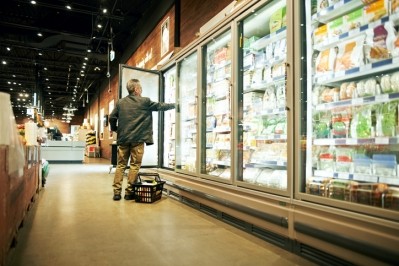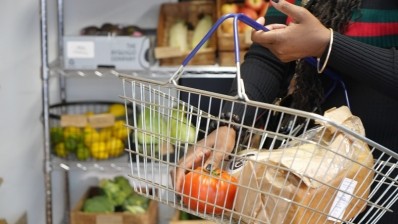Conagra sales, volume slip as shifting shopping habits ‘elongate’ volume recovery

He attributed a slight year-over-year 0.3% dip in organic net sales to $2.9bn in the quarter to a 6.6% decrease in volume, the recovery for which “has been elongated across the industry due to near-term consumer behavior changes.”
He explained, “After three years of unprecedented inflation, along with other macro dynamics, consumers have felt increased financial pressure and used a variety of strategies to stretch their balance sheets. This resulted in a near-term reprioritization of their typical purchase behaviors in order to make their budgets work.”
For example, he said, many consumers are holding off on discretionary purchases across the board, “actively reducing remnant household inventory from the pandemic” and switching from more expensive convenience items to “more hands-on food prep to get additional bang for the buck.”
Frozen segment takes brunt of negative impact from shifting shopping habits
Conagra’s frozen offers, including a broad selection of single-serve frozen meals, have suffered the most from these shifts with retail sales dropping 4% in the first quarter after a steady slowdown in growth from 9% in Q2 of fiscal 2023, 4% in Q3 and 2% last quarter.
Despite this hit, Connolly remains optimistic about the frozen category’s longer term potential.
“Despite the recent impact on volume, we continue to gain unit share in important frozen categories like single-serve meals. This dynamic demonstrates the relative strength and strong position of our brands. Second, the year-over-year performance figures do not properly represent the broader trend within frozen food. In fact, if you look over a four-year period, Conagra's frozen retail sales have increased 22%.
“Frozen meals has been one of the fastest growing categories in in-home consumption over the past 40 years. Its 4% CAGR is in the top tier of foods growing in at-home consumption. This expansion has been fueled by the long-term sustained consumer demand for convenience as well as the addition of innovation and quality ingredients. This 40-year trend demonstrates the critical role that frozen plays in providing convenient, high-quality foods for every occasion which consumers have come to increasingly rely on. This is central to why we believe the current softness is temporary,” he explained.
Are consumer shopping shifts temporary?
He also believes many of the shifts in shopping consumers have adopted in recent quarters are “temporary tactics that people use to get through a period of time when they’ve committed more of their cast to something else.”
As such, he argued, current consumer behavior and its impact on elasticities are “a different animal than what we would call normal elasticity effects” in that “here, the consumer is not passing judgment on the value of a specific brand following a price increase, rather, they're temporarily reranking how they prioritize entire categories in order to live within their means for a period of time.
He added, “Consumers are creatures of habit. So it's very difficult for them to deprioritize things like convenience benefit. So this is one of the key reasons we expect these shifts to be temporary. They have been in the past, and that's what we expect again. And it's also why we're really loading up our resources in the back half where we think the market conditions will be much more favorable to driving the kind of impact we're seeking.”
Conagra reaffirms guidance
Conagra appears to be taking this optimism to the bank and is reaffirming its full-year guidance, which includes an organic net sales growth of about 1% over fiscal year 2023, an adjusted operating margin of 16% to 16.5% and an adjusted EPS between $2.70 and $2.75.
“Overall, we remain confident in our plans, people and agility as we continue to navigate this shifting consumer environment,” he said.














